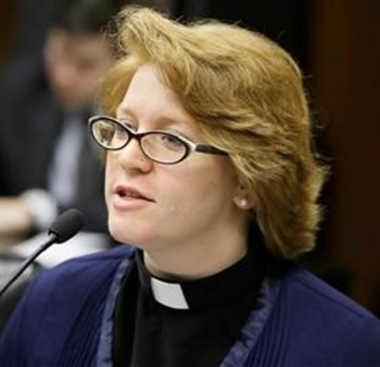Arkansas panel rejects 'conscience-protection' measure

Little Rock, Ark. (AP) — A proposal to prevent state and local governments from infringing on a person's religious beliefs failed before an Arkansas legislative panel Wednesday after facing mounting criticism that it was an attempt to justify discriminating against gays and lesbians.
The Senate Judiciary Committee rejected the "conscience protection" measure, a day after retail giant Wal-Mart said the measure sent the wrong message about its home state and Republican Gov. Asa Hutchinson said he had reservations about the bill.
It was a victory for gay rights groups, days after Hutchinson allowed separate legislation to become law that bans local governments from expanding anti-discrimination protections to include sexual orientation or gender identity.
Supporters said they may later bring back the "conscience protection" proposal, which would ban any local or state laws or regulations that substantially burden religious beliefs unless a "compelling governmental interest" is proven. The bill, if enacted, would strengthen any case of a person suing the government if that person could prove their religious beliefs were infringed upon.
The legislation is patterned after the federal Religious Freedom Restoration Act of 1993. According to the National Conference of State Legislatures, 19 states have similar laws and 10 states are currently considering them.
"If the state is going to infringe that right to believe, they've got to have a good reason to do that," Republican Rep. Bob Ballinger of Hindsville told the panel.
Opponents called the measure a thinly veiled way to allow businesses to discriminate against the gay, lesbian and transgender community. One critic compared it to the 19th century U.S. Supreme Court ruling that upheld racial segregation of public facilities under the "separate but equal" doctrine.
"It is 1896 old, Plessy v. Ferguson, and it is wicked, and for that reason I ask you to please, please not pass it," Wendell Griffen, a Pulaski County circuit judge and Baptist pastor, told the panel.
The measure faced tougher odds than the local ordinances restriction, since it went before a committee evenly split between Democrats and Republicans. The vote was 3-3 with one member voting present, short of the five votes needed to advance.
Both bills were pushed in response to a Fayetteville ordinance that barred discrimination based on sexual orientation or gender identity, which the city's voters repealed in December.
Opponents of the local ordinances measure had urged Hutchinson to veto it after he said he was concerned about it infringing on local control. Hutchinson allowed that measure to become law without his signature, making Arkansas the second state to enact such a ban. The governor said Tuesday he had concerns about unintended consequences of the "conscience protection" legislation, but stopped short of saying whether he opposed it.
Bentonville-based Wal-Mart's criticism of the measure was nearly identical to concerns it raised about the local ordinances law. Apple Inc. also spoke out against the measure on Wednesday, saying "inclusion inspires innovation," and urging state's legislators to vote against the bill.
Despite the bill's defeat, advocacy groups ramped up lobbying efforts in case it's revived. The Human Rights Campaign, the nation's largest LGBT rights group, said Wednesday it was launching a $25,000 digital and television ad purchase to urge lawmakers to oppose the "conscience protection" measure.
The Arkansas Municipal League and the Association of Arkansas Counties also opposed the bill, saying it would open local governments to increased litigation over their ordinances.
By Andrew DeMillo, Associated Press. Copyright 2015 The Associated Press. All rights reserved. This material may not be published, broadcast, rewritten or redistributed.
The Gayly – February 25, 2015 @ 4:35pm.





